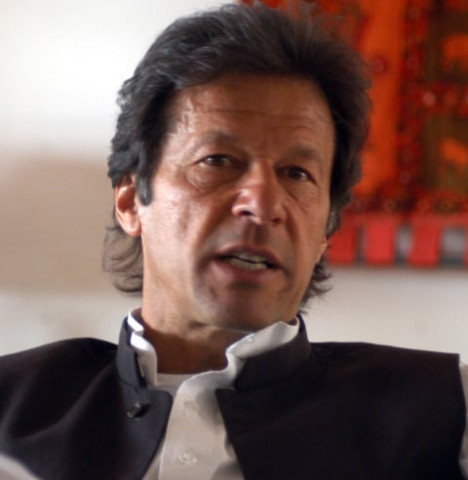Unfortunately, neither one is correct.
While Khan would argue that his decision is based on the “immeasurable hurt caused to Muslims across the globe” by Rushdie, his decision, just days before the event should not come as a surprise. He has been consistent in saying he would refuse to attend any event at which Mr Rushdie was a guest. Plus, any Pakistani with half-a-brain, let alone a politician, would realise the risk to their own life and limb presented by being seen on the same platform.
A similar statement at the Kolkata Book Fair in January met with a prompt reply from Rushdie, who tweeted,
“Thirty years ago @ImranKhanPTI was a fan at my 1982 Delhi lecture and 100% secular. Now my work ‘humiliates’ his ‘faith’? Which is the real Imran?”
Good question, and one that got a swift reply from the PTI's secretary general.
“Rushdie should know that in 1982 he was just another author and had not published his blasphemic Satanic Verses which he did in 1988. Since then Salman Rushdie is a pariah (to say the least) in the Muslim world.”
The response is only half true. Rushdie in fact won the Booker Prize for Midnight's Children in 1981. He was a star in the field of literature, not “just another author”. But the fact remains, Khan did nothing wrong at that point because he cannot, nor has he ever claimed, to be able to see the future. He did not know that Rushdie world of magical realism would soon include a story offensive to much of the world's Muslim populace, starting with the then living leader who was not-so-subtly hinted at in the book, Ayatollah Khomeini, who would later issue the famous fatwa against Rushdie.
Depending on the interpretation of the piece, Rushdie's work may be portrayed by some, especially those unfamiliar with Islam and the rules for portraying God and the Prophet, as an example of free speech. There is an underlying problem there. While free speech is and should remain a right, incendiary speech is not.
Would the world have been a better place had Rushdie not written the book? Probably not, but would it have been a better place if his apology for “the distress the publication has occasioned to the sincere followers of Islam” were accepted? At least 50 people died worldwide because of the fatwa, which by the way, was rejected by multiple Al-Azhar University scholars on legal grounds.
However coming back to Imran Khan, was the Kaptaan's decision really a moral one taken on the grounds that Rushdie hurt Muslims' feelings, or was it a political move to strengthen his support among the right-wing?
Khan, who is described by the British newspaper The Guardian as having a conservative agenda, could make his point much more clear and acceptable to the left and liberals if he had simply maintained the same honor code domestically.
Instead, he has let his party members share the stage with the 'Defy' Pakistan crowd, the same group that includes such moral beacons as Samiul Haq and the entire Sipah-e-Sihaba Pakistan/Ahle Sunnat Wal Jamaat leadership.
For those unfamiliar with SSP, they are the kind that consider Shias to be non-Muslims, and are believed to be linked with the Tehreek-i-Taliban Pakistan. You know the guys who kill soldiers, men, women and children in Khyber-Pakhtunkhwa and Punjab? They, apparently, are not people who cause immeasurable hurt to Muslims across the globe.
Just in Pakistan.
Or maybe it’s because they 'kill' people. It’s hard to hurt a dead man's feeling.
Mr Khan and his party's credentials as a viable threat to the established parties in the upcoming elections can be seen through the amount of popular support he has. He provides hope that the country will be cleaned up and national interest - defined as whatever the army says it is, will be protected. Yet he associates with questionable characters and keeps blaming domestic terror on foreign hands.
Al Qaeda is just one example of a terrorist group that attacked those that were once its benefactors. TTP, SSP, and a host of other letters come up when you look at the ones attacking Pakistan. They too, are attacking those that used to fund them. Terrorism in Pakistan may have increased due to the war in Pakistan, but it was never imported. It was, and is, homegrown, and largely home-funded.
The only way to stop it is to fight extremist ideology, cut off support, including from within the establishment. This may go against some powerful players' interests, but if Kaptaan wants to lead this nation to glory, he needs to do what is best for the people, not the khakis or mullahs, and that includes keeping them alive.
Only when Mr Khan accepts this, not just personally but publicly, and only when he realises that negotiating with terrorists is not a valid option for Pakistan (the US can pack up and leave Afghanistan for a safe homeland, we can't just leave our own country), will he be ready for the show.


COMMENTS
Comments are moderated and generally will be posted if they are on-topic and not abusive.
For more information, please see our Comments FAQ